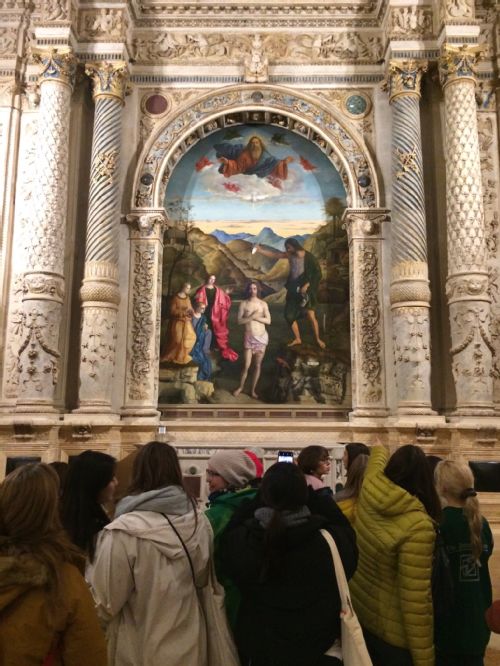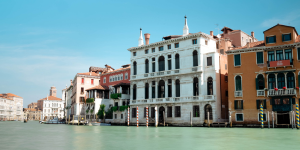A history of Warwick in Venice - with Dr Luca Molà

Back in June, Warwick opened the doors to our beautiful new home in the very centre of Venice. Now, as the first cohort of students to explore the Palazzo Giustinian Lolin building spend their own term in the city, Dr Luca Molà – Director of the Warwick Venice Centre, Associate Professor of History, and Venetian native – writes about his future ambitions for this space, and why Warwick's links to Europe are more important than ever.

The background
Many staff members are aware that the University of Warwick was founded in 1965 – but you may not know that the Warwick in Venice programme began just two years after that, in 1967.
It was the idea of the History department’s Professor John Hale, who decided to take third-year History students to study in Venice for a term, giving them a unique opportunity to learn about the city's history and culture – from the Middle Ages right through to the Renaissance.
The Venice programme grew in 1974, with third-year Art Historians coming along for the ride. Many Warwick alumni have very fond memories of the Venice term – some even met on the trip and later got married!
Changing locations
I joined Warwick in 1999, and after a few years I proposed an idea: why not look for a place in Venice that we could use for the whole year, not just one term? After moving to a different space in a year-round location from 2006 to 2018, I was given a new task: to find a central spot for the programme.
Now, in 2023, our Warwick Venice Centre overlooks the Grand Canal, in one of the most central areas of the city, as part of the historic Palazzo Giustinian Lolin building.

A window for Warwick in Europe
After Brexit, it was more important than ever for Warwick to find a location that was visible and central – a window for Warwick in Europe. Despite the continuing challenges of Brexit, one thing that’s always been very clear is Warwick’s pride in its links to Europe.
These links shine through as we play our part in the EUTOPIA Alliance, and via our strong links to Ca’ Foscari, the University of Venice. Ca’ Foscari offers Warwick students the chance to learn Italian while they’re in the city, and even hosts a ‘buddy programme’ that helps Warwick students to integrate into life in the city of Venice, sharing experiences and forming friendships.
Hands-on learning
I wanted our Warwick students to be in the place where the things they’re learning about happened. That’s why now, as part of the Venice programme, we go far beyond the classroom. Our teams take the students out to places like the Rialto – the famous commercial heart of Venice – and even beyond, to cities such as Mantua.

My long-term dreams for the Warwick Venice Centre
- My dream is to transform this new base from a teaching space to a specialist teaching and research space – to set up collaborations with other universities and institutions across Italy, Europe and the rest of the world.
- Our teaching centre will be even more excellent, with Warwick International Intensive Study Programme (WIISP) modules offered not only for Warwick students but also for other students studying in Venice from institutions such as Monash, Cornell and New South Wales.
- We’ll expand our Venice term offer, and extend the invitation to many other Warwick students, such as those studying Science and Social Sciences.
- Over the coming years, we’ll see some exciting research projects take place – some are already funded and in the process of being created! For example, we have a grant from the Italian government which will help fund a historical document digitisation project.
Not tourists
For me, one of my very favourite things about Venice is building a genuine relationship with our students over a longer period of time. When we see them in this different environment, we can really pick up on their excitement and enthusiasm, and there’s often a level of pastoral care involved from us staff.
I also love that the students get to experience Venice as authentic participants. I always say to them, “Remember: you’re not tourists. For this term, you live here too.”
